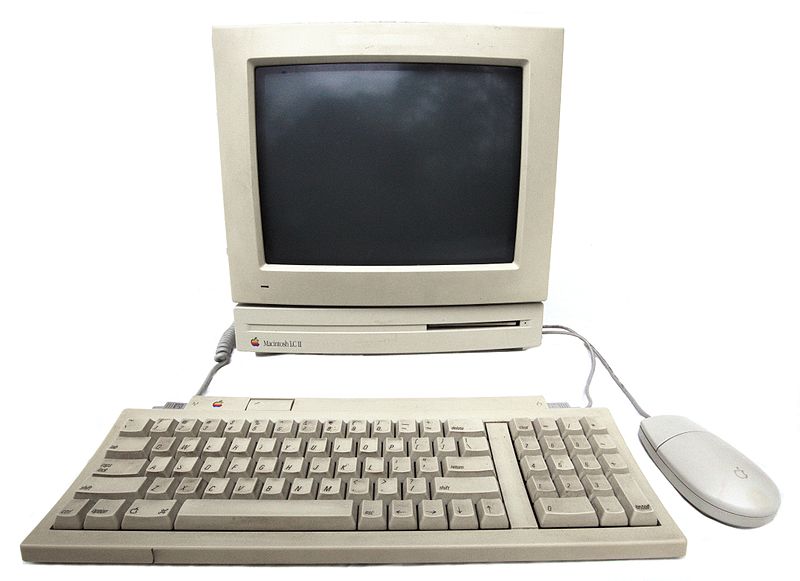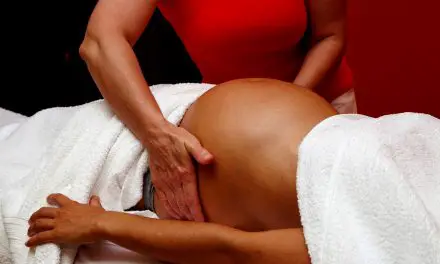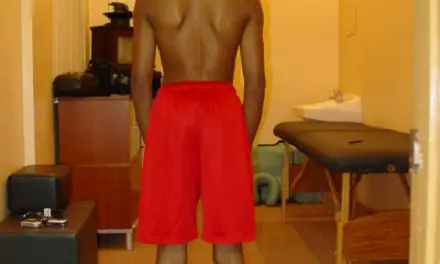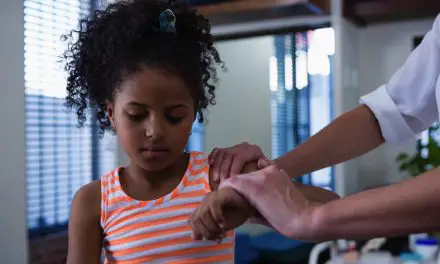I’ve been an Internet-loving massage therapist since 1994, and I’ve received a better education online than I have in most formal classrooms. The Internet has offered me the opportunity to connect with brilliant colleagues, trailblazers, and mentors around the planet, in addition to feeding me an endless stream of hilarious cat memes.
The instant accessibility of information makes it easy to remain inspired, challenged, and engaged in ways unimaginable not long ago. The Internet is why I’ve been able to grow leaps and bounds on my professional journey. Strangely, it’s also the reason the growth of our profession has been stunted.
As game-changing as it has been, the Internet kind of ruined what we believed, and now we’re burdened with repairing the damage. It continues to fuel the false claims that have made a circus sideshow of our profession, even after such claims have been effectively disproven or remained unvalidated.
I graduated from a 500-hour massage therapy program in 1994. Back then, the biggest challenge for women was public perception and reiterating that a masseuse was not a prostitute. For men, the challenge was finding any field employment while not being pigeon-holed as sexual deviants. The happy-ending to those days (no pun intended) is that we collectively overcame those obstacles and arrived at a new tier of public acceptance and demand rather quickly. Insurance companies reimbursed us as independent professionals capable of administering valid healthcare. We thrived without complication or ulterior motives. It was wonderful. But then a new problem surfaced.
The good ol’ days before the Internet
I only learned the basics in a 500-hour massage program. However, I realize the importance of embracing those basics for what they were: simple and inquisitive. We learned general anatomy and the rest was about feel, respect, and expressing presence through touch. There wasn’t any science to wrestle with or false claims to debunk (except for the toxin myth which still lingers!). There wasn’t even really an Internet to reference. We were all apprentices and massage was pure art. It was about the love of the craft. As much as I appreciate and honor science, I miss the emphasis on the child-like purity that is at the heart of our profession.
There were no wannabe gurus. It was widely understood massage therapy was somehow effective but no one really cared why. At the very least, it helped people feel nurtured, perhaps a bit pampered, and that went a long way. It still does, but oh, how we’ve forgotten the essentials.
See more: How the Myth Massage Can Remove Lactic Acid Out of Muscles Started
Beware of the Internet Flypaper
Regarding innate curiosity, massage therapists are a special breed. For some reason, this profession tends to attract peaceful philosophical and/or mystical types. Some of us constitute a potpourri of deep wounds. They can often serve as a subconscious driver enabling us to excel at the compassion necessary in our work. We’re fidgety self-exploration addicts who can’t pass up a personality test, astrological reading, or other thing that appears to define what makes us or others tick. We generally adhere to words implying “energy” and “vibes” like flies to flypaper.
Actual flypaper is made of paper coated with a sweetly fragrant, and the sticky substance which traps flies when they land upon it. Similarly, massage therapy “flypaper” is coated with sweetly wrong and sticky misleading concepts that attract many therapists. Oftentimes, they wind up getting stuck to them. Those who do don’t even realize they’re trapped. As the Internet evolved in the mid-1990s, countless flypaper coils were hung about as web pages, and now it is nearly impossible not to get your hair caught in them even when you’re just passing through.
As seen in many online forums and professional practice discussions, there comes a time where someone would ask for evidence to support or negate a claim. While this is proper measure, the problem is one can literally find support for any idea no matter how ridiculous or insane it may be. That’s because it’s a free-for-all. Everyone has an all-access pass to the Internet and the sites with the best search engine optimization (SEO) win the first page search results.
Search engine algorithms are not really the problem. It’s those who don’t comprehend how a thorough Internet search works or that nowadays you can justify almost anything you type in, such as, “are there any aliens in my neighborhood.” Go ahead and Google it.
The disappointment lies in the fact the Internet still has no garbage filter. It is up to us to filter our own preconceived notions, and that’s easier said than done. Coincidentally, the same people who don’t know how to phrase an objective web inquiry may not have critical thinking skills. They may sincerely not recognize reliable sources or choose to ignore them completely. And I used to be like that. Enter confirmation bias: the ultimate flypaper trap.
Is the Internet responsible for the confirmation bias plague in massage therapy?
It seems easy enough to conduct an Internet search. There is even a WikiHow topic breaking down the obvious and ironic steps. The opening lines read: Are you unfamiliar with the Internet? If you want to know how to search the Internet, then you have to find the right search engine, type in your search as accurately as possible, and browse through the results to find the one you want.
Wait. WHAT? “…browse through the results to find the one you want”? In other words, the instructions for performing an online search are the same as those which further affirm confirmation biases. How about find the one you want then dig deeper to compare with results that contradict or negate it? Then verify all sources, discuss openly with your peers, and reformulate your assumptions from there?
Believe it or not, most people probably won’t do that! That’s because it requires more effort, extra reading, and maybe not being right sometimes. Our fragile egos aren’t into realizing our inherent fallibility. Humans will go to great lengths to deny they are wrong. Many go so far as to seek cliques proclaiming the same falsehoods in order to avoid the very normal and fleeting discomfort of having been innocently mistaken — even when the evidence is clear as day. If other people agree, how can I possibly be wrong?! It’s even on the Internet!
I guess there are aliens in your neighborhood after all.
People will continue believing anything if they find only ONE other person who echoes their belief. Why do I say this? Because I used to be one of those people trying to make sense of things, particularly the common sensations I began feeling when learning massage therapy. It was a magical biological meditation I never experienced before. I understand why people seek equally magical sounding explanations for what they’d like to believe is happening. The pretty metaphors can make sense, especially when schools at any level do not teach rudimentary critical thinking skills and science is treated as a frilly afterthought.
Luckily, I took it upon myself to learn the difference between wrong, less wrong, and solid peer-reviewed research. I also learned how to search the Internet better and swallow my pride.
Some like my younger self were born with a penchant for fantastical possibility and earnestly wishing hands could cure cancer. As crazy as that may sound, these folks usually come from a good place. Unfortunately, schools keep peddling ideas and claims as valid, our leading industry organizations continue reinforcing them for the sake of revenue — and to top it off, the Internet says so.
Bad news: the Internet will probably never stop enabling confirmation biases soon. To add to the pile, there’s also a charismatic tech-savvy marketing guru born every minute, wooing unsuspecting hopers and the wonder-prone with their concocted dogmas. Their long-since debunked web pages will stay up, possibly forever, and continue to multiply like fruit flies in various mutations. So what can we do?
The Discomfort Zone in massage therapy
Giggle if you want, but the fairy tales of chakras offered a fun exercise in visualization. It gave my restless mind colorful focal points and instantly helped me embody calm while working. The philosophical poetry of the meridian theory is reverent, historic, and naturalistic. It’s an attractive model, and I can see why many massage therapists are initially drawn to it.
“Eastern” approaches taught me the importance of rhythm and timing in application. The “Western” structural-anatomical models reinforced the language and concepts that I thought were at the core of being a true pro. They gave me a firm ground where I could stake my claims and believe my experience and knowledge would be absolute and self-actualized. These are the concepts I filled 15 years of notebooks with. It was so painful to have to burn them all and start over.
Within a few years of the birth of the Internet, I could easily pull up hundreds of web pages by respected professionals cheerleading the ideas I held so dear. However, I could less easily hone in on the emerging evidence which would contradict them because the cute-but-awfully-wrong concepts are so catchy.
Kind of like Justin Bieber. They get shared, linked to, and visited more often than their evidence-based counterparts. They may weigh heavily in Google search rankings, but that does not mean the information is correct or valuable. Learning to sift through good evidence versus the bunk is like investing the time to appreciate the significance of John Cage’s 4’33’’. It’s not quite what you expect and that kind of truth isn’t what most people want hear when they’re out dancing.
On the bright side of the Internet
I’ve since learned how to perform a proper online search and am no longer glued to my beliefs as a reality, therefore decreasing the odds of being fooled. If I can arrive at this place, I have faith others can as well. Confirmation bias has nothing to do with capacities for intelligence because there are plenty of extremely smart people stuck to the flypaper, which is perhaps what makes it so frustrating. It has everything to do with the threat to one’s meaningless ego. The bigger the ego, the greater the denial. It takes a big person to check themselves and realize when the jig is up. We need to surround ourselves with those kinds of big people. They may not always be the most popular, but they are the most honest and ethical.
Our profession needs to embrace the mindset of humility and realize mastery is illusive. We need to embrace forgetting what we’ve learned, because it is all subject to change.
Our educators need to realize it’s cool to acquire the critical thinking tools to reason their way out of a comfort zone. We must share those tools and encourage the reality of uncertainty. It’s cool to admit when we don’t know something because it opens us to deeper learning (instead of making stuff up based on stuff someone else made up a hundred years ago). And it’s cool to question everything we learn, including ourselves, and to recognize our biases are merely opinions worthless to anyone but us. This all takes work well beyond what we get paid to do.
If elements of critical thinking were taught alongside effleurage and petrissage, we wouldn’t be wasting words proclaiming to “release” structures that don’t need releasing. We wouldn’t squander valuable space-time learning defunct concepts that make us sound like total stoners around medical professionals. And we wouldn’t have to listen to the maddening chorale of “but that’s what I was taught.”
When massage therapists gain more reverence for scientific evidence than they do for false claims and subjective beliefs, maybe our profession will have a real shot at proving what it’s capable of. Maybe we can finally earn our stripes in healthcare. The good news is that the keys and road map to our continued progress can also be found freely on the Internet as long as we keep searching, stay humble, and are willing to throw out the nonsense and outdated ideas.
_______________________________
Tania Velázquez teaches orthopedic & sports pathologies, kinesiology, and the advanced practical class at the New York campus of Pacific College of Oriental Medicine. She graduated from Florida Academy of Massage in 1994. Stuff that interests her include urban gardening, hapkido, home-cooking for guests, and exploring non-verbal communication and its intricacies and power behind the words we choose to use in practice.
She can be reached at: tania@pinpointeducation.com

Tania Velásquez, LMT
Tania Velázquez teaches orthopedic and sports pathologies, kinesiology, and the advanced practical class at the New York campus of Pacific College of Health and Science and at Pinpoint Education. She graduated from Florida Academy of Massage in 1994. Stuff that interests her include urban gardening, hapkido, home-cooking for guests, and exploring non-verbal communication and its intricacies and power behind the words we choose to use in practice.





